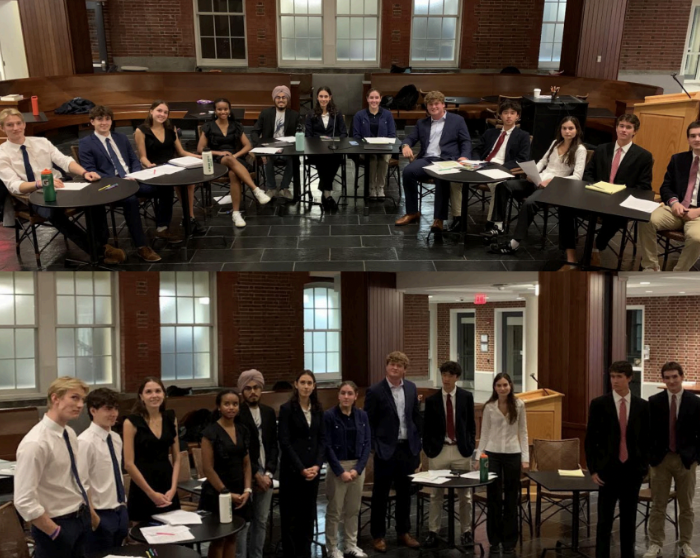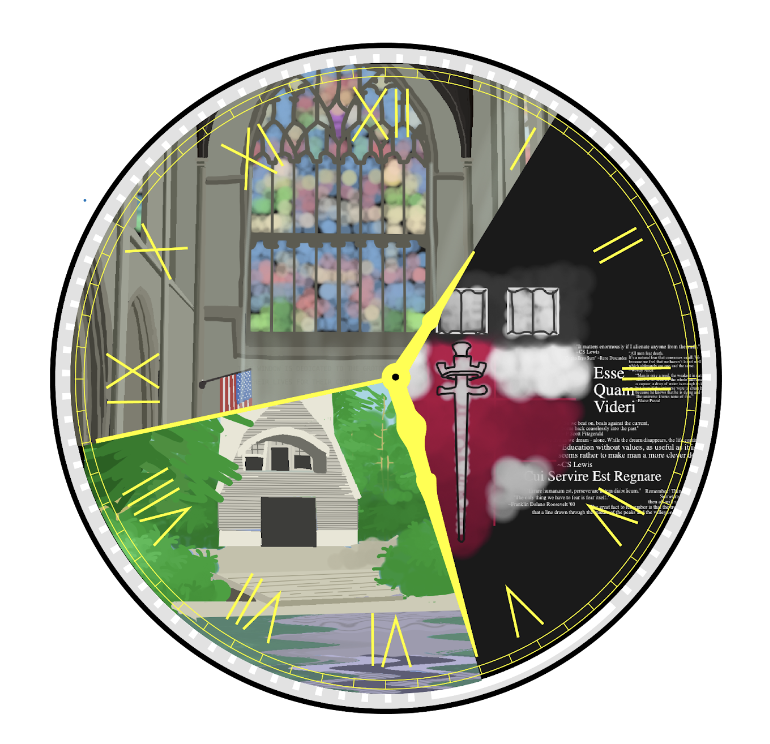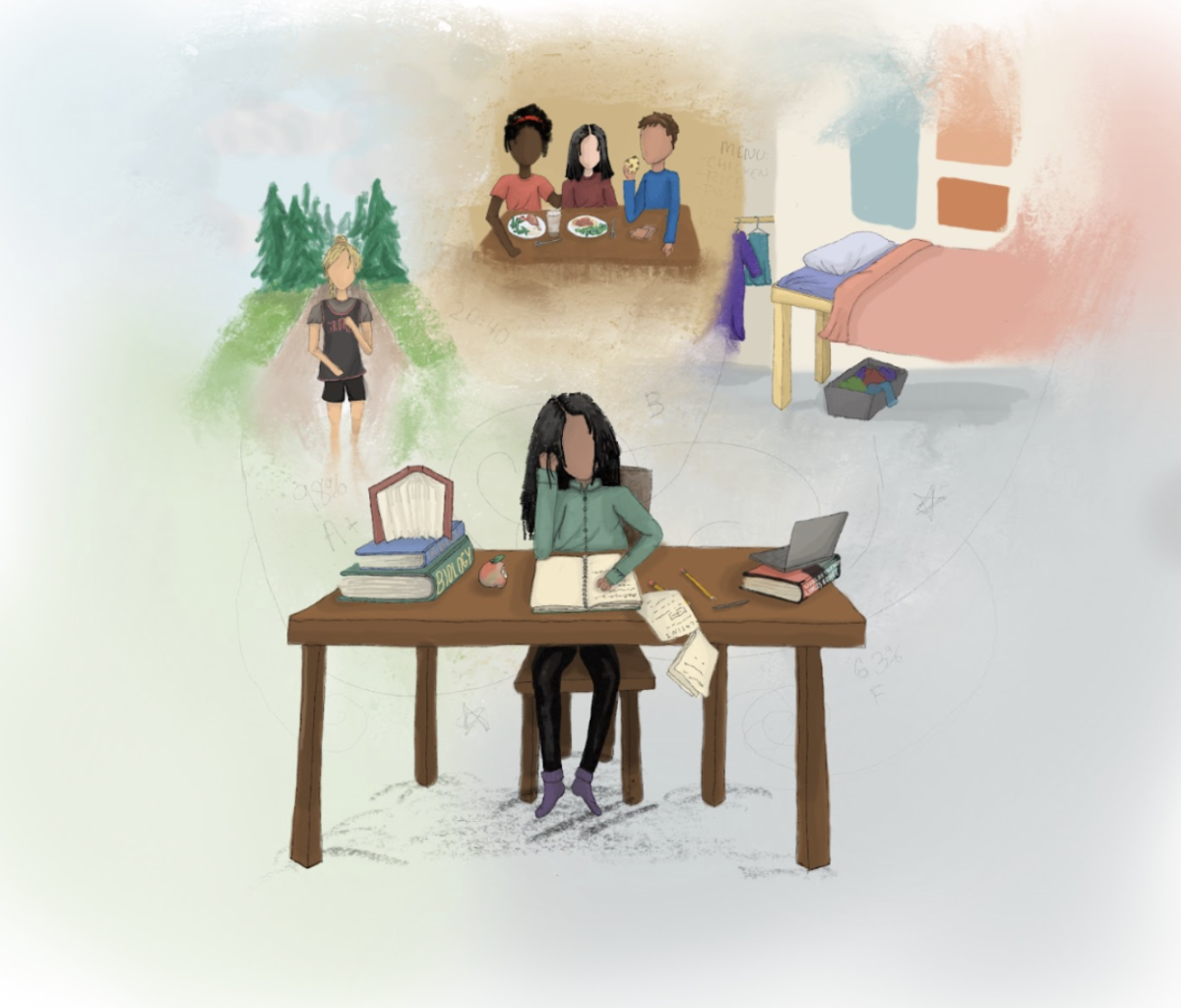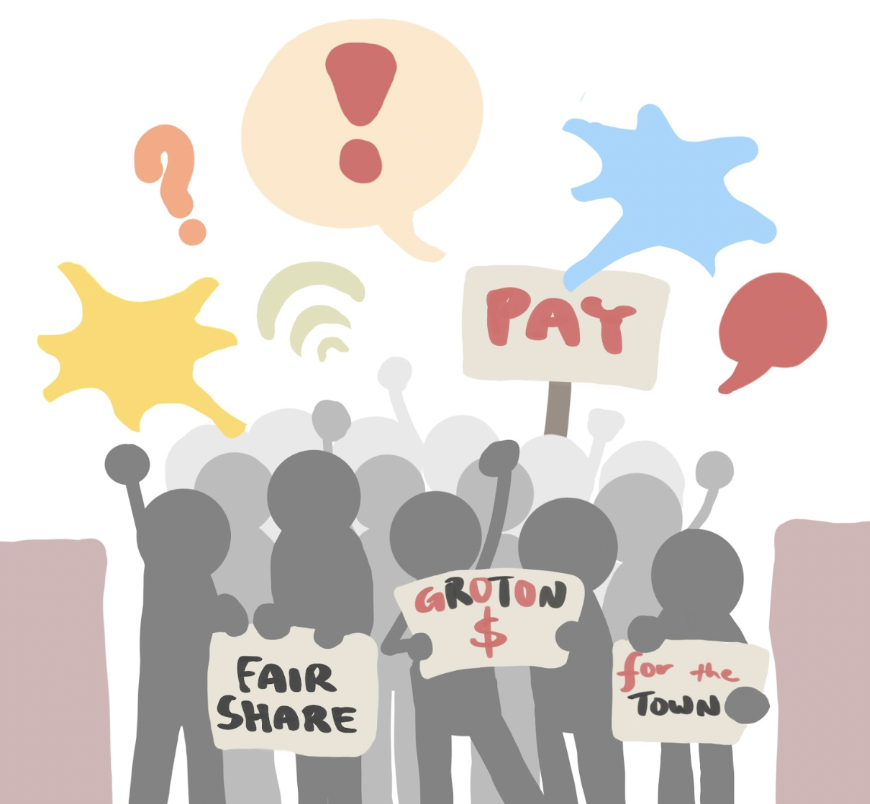The democratic system of the United States relies on partisan conflict to provide voters with a sense of identity and choice. While the two-party system can unite people towards a common purpose, it is also a mechanism of division if not dealt with correctly. Through the involvement of Groton students in moderated settings such as the Town Hall held in late September, Groton’s various socio-political clubs are demonstrating to the Circle how to hold civil political discussions.
On September 10, Vice President Kamala Harris and former President Donald Trump met in Philadelphia for their first presidential debate. On the night of the debate, the Current Events, Young Democrats, and Young Republicans clubs hosted a watch party where students of all political backgrounds gathered to view and discuss the debate live. Later that month, on September 26, the Debating Society organized a moderated, Town Hall cross-examination in collaboration with these clubs.
This student-run debate covered topics such as abortion, economics, foreign policy, immigration, and democracy. There was also time at the end for student questions for the Young Democrats and Young Republicans.
“Through this debate, our community learned more about each candidate’s policies through the students who had done extensive research and preparation beforehand,” says Ella Farahnakian ’25, head of Current Events club and one of the moderators for the event. “Not only was it a dynamic dialogue, but it was also enlightening and clarifying for those who were watching. We were excited that people were excited.”
Ella adds that the event was a great success, both in terms of student turnout and involving Groton students on the democratic process.
“Our goal through these meetings is to spread information within our community about the importance of being civil citizens,” she says. “Regardless of political beliefs, we believe involving all Grotonians in this election is of utmost relevance.”
Jess Shapiro ’26 offers a concurrent perspective on how to improve upon Groton’s discussion of politics: “[The Town Hall] felt like an argument between Harris and Trump campaigns, when it could have been a discussion between broader Republican and Democratic ideas,” Jess said. “These clubs are meant to advocate for the ideals of their party, and shouldn’t be streamlined into just supporting their party’s candidate.”
Rose Fischer ’28, who also attended the Town Hall, commented on the disparity between the Young Republicans and Young Democrats, saying: “I think that it may have been hard for the Young Republicans to debate in a setting where they had almost no support from the audience. This is not an issue caused by the Town Hall debate, but it is a reality of the Groton political makeup. As someone who is not very involved in politics, it was an interesting way to learn about issues in current American politics that will be factoring into this year’s election.” Being in a strongly Democratic state, Groton students with non-Democratic opinions may find it hard to express themselves. By hosting a balanced Town Hall debate with both Democratic and Republican opinions presented, students whose ideas on politics are more uncommon at Groton may feel more welcome to share them, knowing that they are not alone.
As November 5 approaches, these clubs hope to continue fostering student engagement in American politics by hosting a simulated voter experience for students. This way, students can better understand the political makeup of the student body and learn skills for real-world political participation within the safe and respectful confines of the Circle.
Within Groton’s small community, diverse opinions exist on various current issues, the presidential debate being just one of them. By creating an environment for political discussions in a free yet controlled manner, Groton students are more able to express themselves and understand others. Students can share their insights and bridge political divides through civil discussion, creating a more open-minded and harmonious Circle.






